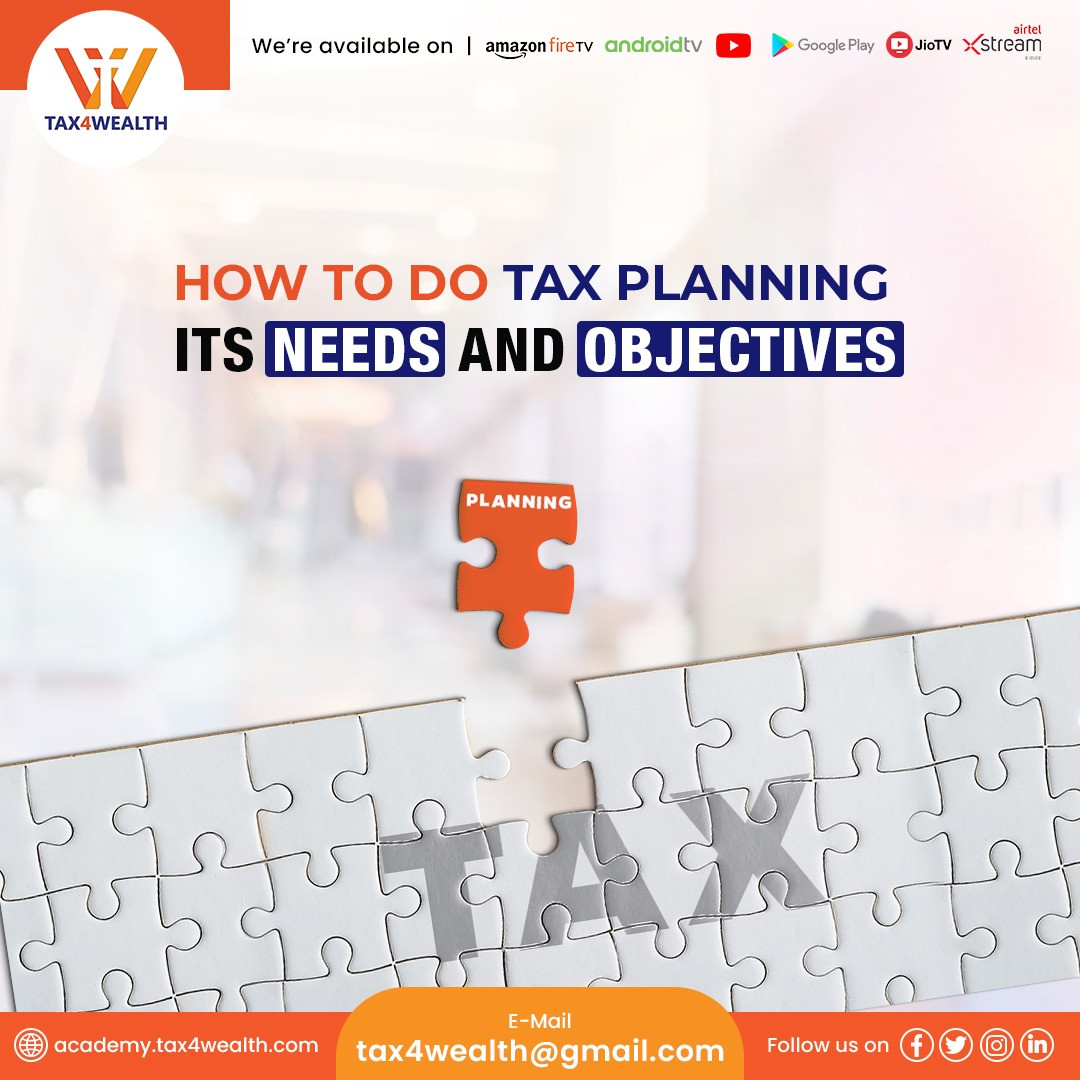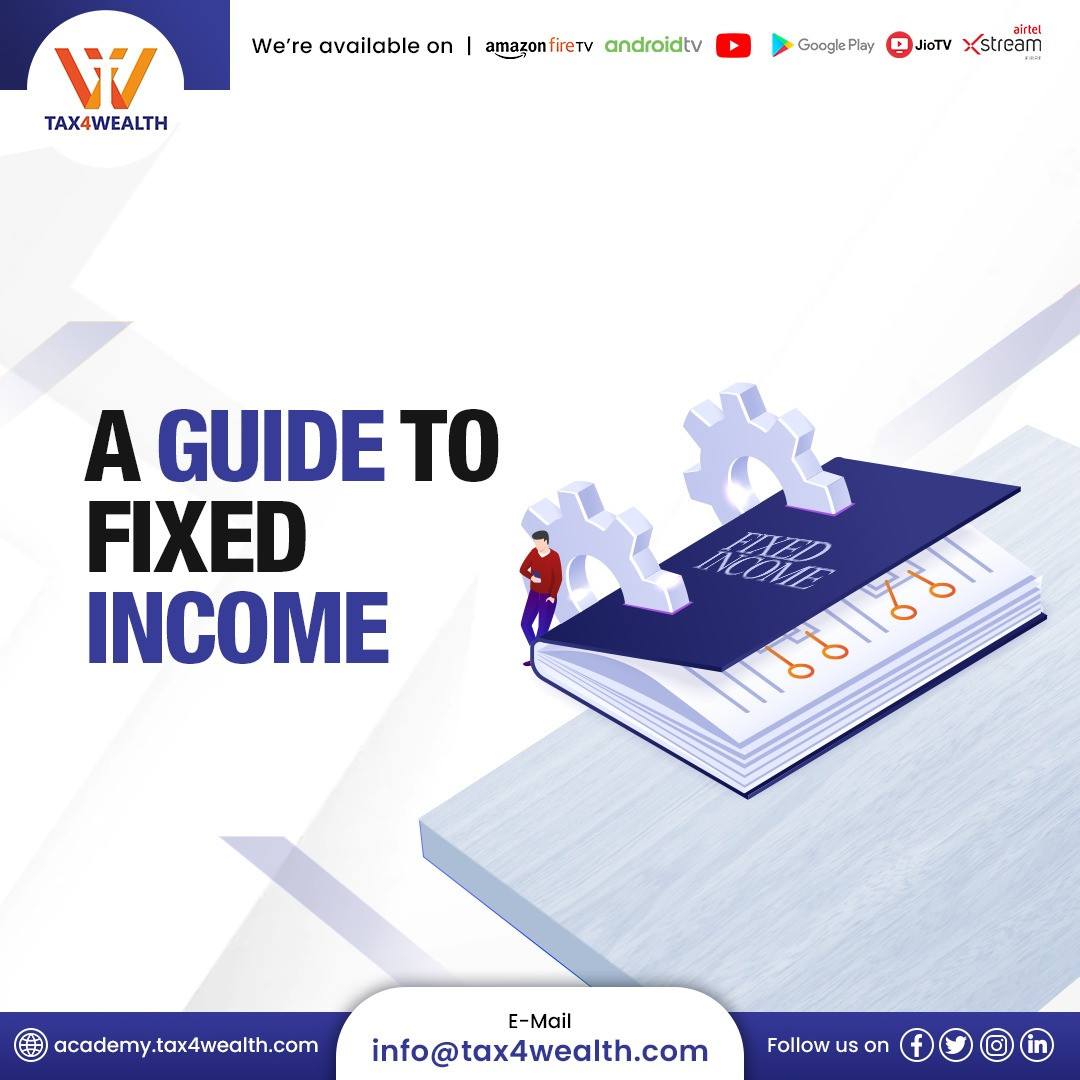
How to do Tax Planning its need and Objectives
Introduction:
Tax Planning refers is the activity done by a taxpayer to reduce the tax liability imposed upon him or her with maximum use of all provided exclusions, allowances and deductions under the provisions of Income Tax Act, 1961. In simple words, it can be regarded as an analysis of financial scenario from taxation view point.
One of main reason for tax planning is insurance of tax efficiency. It allows all the aspects of the financial plan for functioning for delivery of maximum tax efficiency. It is also a crucial aspect for budgetary effectiveness.
Objectives of Tax Planning:
The following are some of the objectives of Tax Planning;
✅ Minimal Litigation: In most of the case, a little friction that exists between a taxpayer and tax collector. In such cases, it is essential to follow the compliance with respect to tax payment. The compliance must be used properly to make the friction limited.
✅ Productivity: It is one of the most important objectives of tax planning. It helps to channelize the taxable income under several investment plans.
✅ Tax Liability Reduction: A taxpayer can save maximum payable tax amount with the use of proper arrangement made by the enterprise under the required laws.
✅ Growth of Economy: The growth of the economy is co-related to growth of the citizens. Tax planning helps to estimates the generation of money in free flow.
✅ Economic Stability: Stability is largely based on the supplements while tax planning when a business is maintained properly.
Types of Tax Planning:
The following are the types of Tax Planning;
✅ Short Term and Long Term Tax Planning: The tax planning that is done on annual basis can arrive at particular objectives is known as short term tax planning. On the other hand, in case of a long term tax planning immediate pay-offs are not included.
✅ Permissive Tax Planning: In this case, planning is done confirming the provisions of the tax as provided.
✅ Purposive Tax Planning: This is method for tax planning which is done basing on the drawbacks in the laws.
Tax planning is a term which suggests methods for calculated applications under tax laws so that the taxation of a person can be managed effectively.
Also, Read; Some Important Tips for Income Tax Planning.
Tax Planning in India:
Indian tax law provides a wide range of tax saving plans for the taxpayers. With large number of options for tax deductions and exemptions through which overall tax output could be limited;
✅ As per taxation law, deductions are available under Section 80U and Section 80C and the same can be used by eligible taxpayers.
✅ These deductions occur against the tax liabilities.
✅ There are various sections under the provisions of Income Tax Act, 1961 including tax credit, exemptions to lower the overall tax liabilities.
Corporate Tax Planning:
Corporate Tax Planning is a method to lower the liabilities for a registered company. One of the most common methods includes deductions on employee's health insurance and business transport etc. The deductions and exemptions under Income Tax Act, 1961, the company can widely reduce the burden of tax in legal way.
With the rise in the profits of the company means the higher liability of tax. In such cases, it is essential that the officials dedicate more time on tax planning which helps to reduce tax liabilities. Both direct and indirect tax can be lessened with a proper tax plan at the time of inflation. Apart from that, Tax planning needs proper planning of the following;
✅ Capital budget
✅ Expenses
✅ Sales and Marketing costs.
#Build your career by joining online Income Tax Certification Course.
A Good Tax Planning Happens As a Result of The Following Aspects;
✅ The tax benefits must be claimed against the eligible investments
✅ Providing correct and accurate information to relevant Income Tax authorities
✅ To be well informed about the applicable tax laws and court judgments.
✅ Tax Planning must be conducted completely under the specified law
✅ Planning must be taken into considering and business objectives and flexibility for future changes in incorporation
✅ A person can become a fist time taxpayer or a long time taxpayer in case the taxation aspect is not planned properly.
✅ The clauses of income tax seem to be complex that common man cannot deal with the same.
The following are the business dealings of a taxpayer in such a way that the tax benefit can be availed with the help of legitimate ways, so the tax amount will be minimal.
The following are some of the common mistakes made by common man in respect of income tax:
✅ Investment in insurance products for tax saving: Generally, when the financial year is approaching, the insurance companies make a lot of phone calls to taxpayers to buy insurance products. However, this is not one of the wisest investments to do in that particular time.
✅ Compounding Power through tax saving mutual funds: Many people think that power of compounding despite all the supporting factors
✅ Optimization of all available tax saving options; Many people are of the opinion that tax planning begins and ends with Section 80C of Income-tax Act, 1961 which describes only about the investment instruments for saving tax.
For more information, Visit us at: https://academy.tax4wealth.com/
No comments yet, Be the first to comment.













